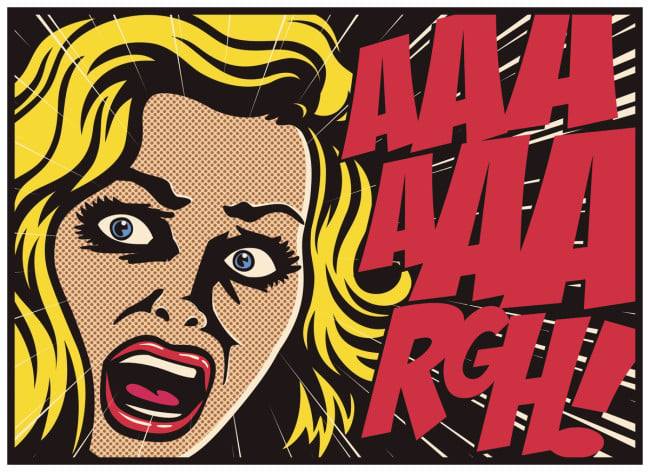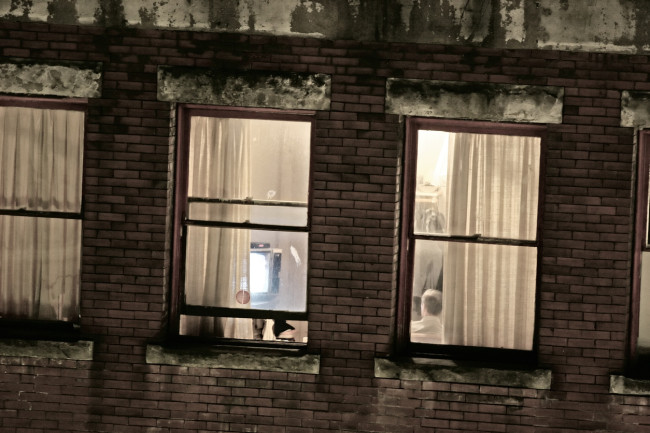I wanted to buy a studio by myself, but my co-op wouldn’t let me unless it was in my husband’s name too

Eventually, the author writes, her husband talked her into using her inheritance to buy the studio as a couple—which became marital property in their divorce.
iStock
When I was still married, I tried to buy a studio apartment for $155,000 in the same co-op building where my husband and I lived. But the board turned me down for reasons that were straight out of the 1800s.
Between you and me, I always knew I wanted to divorce my husband. The timing stumped me—for years. That and our finances. And property. Okay, timing, finances, property, and children. Other than that, I always knew I wanted to divorce my husband.
One thing I knew I would need whenever I finally pulled the trigger to divorce was a place to live that I could afford. And that was mine. Not mine and my husband’s that we would fight over. But something that was mine. So I was fortunate to find a place right in my building—that studio.
Editor's Note: Brick Underground's Inside Stories features first-person accounts of dramatic, real-life New York City real estate experiences. Have a story to share? Drop us an email. We respect all requests for anonymity.
What it’s like getting divorced in NY when you own real estate
New York is an equitable distribution state. That means when someone files for divorce, the couple must divide marital property equitably or fairly.
What this also means is that property—such as real estate—acquired by either party during a marriage, can belong to both if and when the marriage is dissolved. Why the co-op board wanted to weigh in on who can own property within a marriage was a mystery, as you shall soon find out, dear reader.
I was a college student when I got married and so was my husband. Neither of us had anything. I’m a performing artist and he’s a finance guy. So, you tell me, who’s bringing in the money? Don’t get me wrong, I always earned money. It wasn’t the same category of money that he earned. But I always worked—freelance, short contracts, cash, drink vouchers. That’s how my work is compensated in our society.
A woman (or person) can own something not subjected to the rules about equitable distribution if she inherits it. Somehow that little tidbit had caught my attention and lived in the drawer of my mind like a rubber band I might need someday. And sure enough, my grandmother passed away and my parents offered me a tidy little piece of her estate: $150,000. That’s both a lot of money and not a lot of money if you live in New York City. But it was enough for me to go into contract to buy the studio for $155,000.
I couldn’t finance the purchase because I didn’t qualify for a mortgage on my own. Fine, I figured, since cash is king and I have some inherited cash, I can use that. And once it’s mine, I can make decisions all on my own about what to do with it later.
It was a full-circle kind of move for me because when we were buying our first apartment, and I came prepared with my income documents, the mortgage banker said to me, “Your income isn’t even considered in this application, we’re just using your husband’s income.” After being obliterated like that, it felt good to be able to do this on my own, or so I thought.
The co-op board scrutinizes the deal
The next step was to have the purchase approved by the co-op board. I expected the approval process to be just a formality. I assumed I was an ideal candidate, after all, I’m already a shareholder in good standing—they knew me. I had never been late on a payment or had a complaint against me. The maintenance for the studio was $336—of course I could afford that.
So I was stunned to get a list of follow up questions and comments, such as: What did I need the studio for? Why was I buying it? You know you can only own a co-op apartment if it is your primary residence. You know you can’t sublet it for more than two years. Will you have clients coming in and out of the building?
I’m a writer, I said. I need a quiet place to write that isn’t my home and of course the building is my primary residence. This will just be an additional living space. It didn’t seem fair to have to justify myself. But apparently, I had to give them a way to understand that I wanted to own something. I had to wonder; would they really care this much about how the space is used if my husband were trying to buy it?
The board poured over my tax returns and income statements. As a working artist, I’m allowed to deduct many expenses from my taxable income. The questions revealed their ignorant suspicions: “Did you get compensated for these expenses from your employer?”
At the same time, they refused to give me an interview. They were concerned I might be emotional. Emotional? I wasn’t emotional until that point.
Months went by. The list of requested follow up documents grew longer.
A ridiculous rejection letter
Since this is New York City, I needed a lawyer to help me with the purchase. My lawyer wrote several letters that said in essence, “Come on! What are you doing? Enough already! Approve the sale! There’s no actual problem with this offer.”
And here, my friends, is the communication I received from the building’s lawyer:
We have been advised by the Board that the application as submitted has been rejected. The Board might approve the application if your husband XXXX is a co-owner and his financial information is sufficient. Please ask him to submit the following:
- W-2s for the previous two years
- Original signed letter from his employer confirming length of employment, current job title, and annual salary.
- Amended contract of sale with husband’s name included as co-purchaser.
That’s right. The board apparently disagreed with the law that entitles me to own property solely in my own name. Somehow they thought that a woman owning a separate unit without her husband was too unusual? Problematic? It was hard to see what the issue was, but for their comfort, they really preferred that I only own property jointly with my husband.
Co-op board rejections cannot be appealed. I had no choice but to accept their decision.
Reader, I know what you’re thinking. You probably think I should have sued the board for discrimination. Just thinking about going through that exhausts me.
Fun fact: The president of the co-op board worked for a national organization for the empowerment of women and girls. Neat, huh? It’s worse than that: No one from the board would speak to me or look me in the eye for years. We’re all still neighbors. Isn’t that fun?
A new plan for the inheritance
The money that I was going to use to buy myself some freedom went into a savings account in my own name. I wasn’t going to spend it on lawyers to fight the co-op.
Eventually, my husband talked me into using the money to purchase the studio anyway. We were having babies and trying to make our marriage work. My husband reasoned that we would need a place for grandparents and family to stay and help with the kids. I figured I could still use it to write and find some solitude even if my husband’s name was on the documents. Regardless, I knew it was a good investment.
The board didn’t raise any objections when they received our purchase application with both our names on it. No interview necessary. Approved.
The co-op decision comes back to haunt me
And now, friends, we come to the divorce part of the story. I’m getting my divorce after all. (Yay!) Sure enough, that studio is marital property. Yes, that means I will have to buy back the apartment I bought with my grandmother’s money. Or sell it and split the proceeds.
Can you imagine if I didn’t have to though? If I owned that apartment as an inheritance, then I would have something I could sell and use the proceeds to move somewhere else, without needing my husband to approve or condone my decisions.
That was always the dream. To have some personal autonomy in my life. But like the co-op board said, “What do I need it for?” Couldn’t I be happy to remain the chattel of my husband and let him own all my property? That makes everyone else more comfortable.
Just this week I was in the laundry room with the former board president. We still don’t make eye contact, but I think about how much the co-op board’s decision cost me every time I see her. Does she? Does she know how much she impacted my life? Does she care? Or does she just not want me to get emotional?
You Might Also Like


























